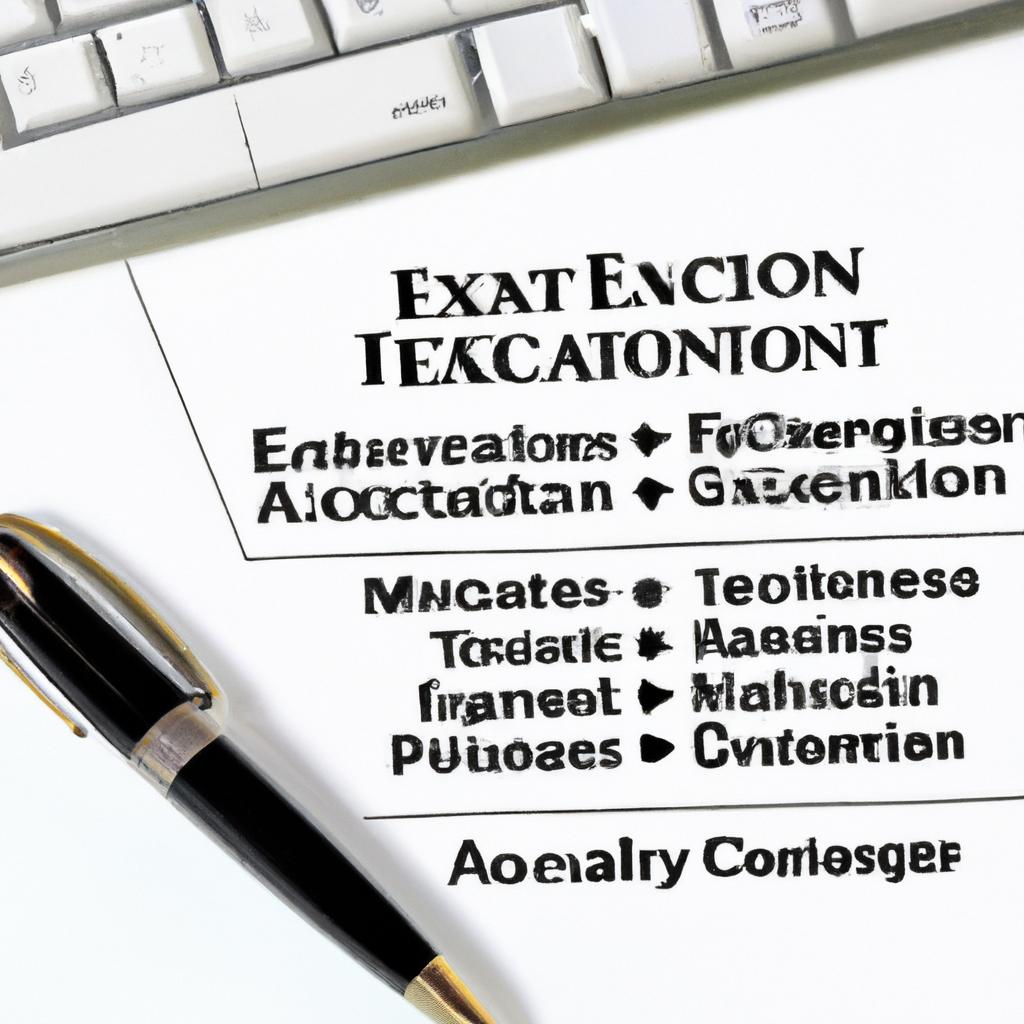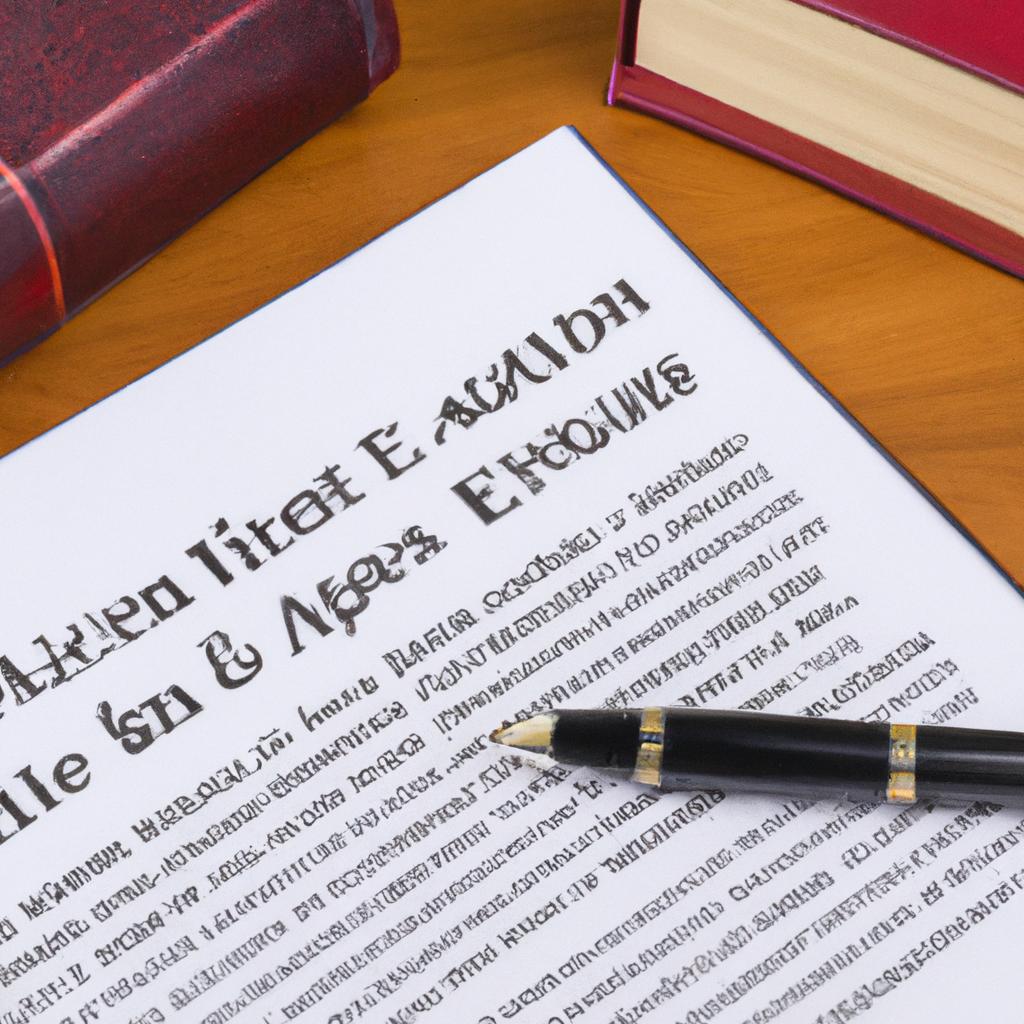As professionals in the field of estate planning and probate law, one of the most common questions we encounter is whether the executor of a will is entitled to compensation for their role in administering the estate. In this article, we will delve into the intricacies of this matter and provide clarity on the legal principles that govern the compensation of executors. Drawing from our expertise at Morgan Legal Group in New York City, we will examine the factors that determine whether an executor is entitled to payment, the methods of compensation available, and the responsibilities that come with the role. Join us as we explore the intersection of law and estate administration to shed light on the often murky waters of executor’s compensation.
Determining Compensation for Executors in New York
In New York, executors are entitled to receive compensation for their services. The amount of compensation can vary depending on various factors such as the complexity of the estate, the size of the estate, and the time and effort required to administer the estate. Executors are generally entitled to reasonable compensation for their services, which is typically calculated as a percentage of the estate’s assets.
It is important to note that the executor’s compensation must be approved by the Surrogate’s Court. Executors should keep detailed records of the time spent and tasks completed in order to justify their request for compensation. Executors can also seek the advice of an experienced probate attorney to help them determine a reasonable amount of compensation. Overall, while the executor of a will can get paid for their services, it is essential to follow the proper procedures and seek guidance to ensure fair compensation.

Factors Influencing Executor Payment in Estate Administration
The payment of an executor in estate administration is determined by various factors that come into play during the probate process. The compensation of an executor is typically outlined in the will itself, where the testator can specify a flat fee or a percentage of the estate assets. In cases where the will is silent on the matter, state laws provide guidelines on how executor compensation should be determined.
Additionally, the complexity of the estate, the amount of time and effort required, and the experience and qualifications of the executor can also influence the payment amount. Executors are often reimbursed for expenses incurred during the administration of the estate, such as court fees, attorney fees, and other related costs. It’s important for executors to keep detailed records of all expenses and time spent on estate administration to ensure fair compensation.

Professional Advice on Executor Compensation in Wills and Trusts
When it comes to executor compensation in wills and trusts, there are a few key factors to consider. Executors, also known as personal representatives, play a crucial role in managing the estate of a deceased individual. While it is common for executors to receive compensation for their services, the amount can vary depending on various factors.
It is important to note that executor compensation is typically outlined in the will or trust document. In some cases, the decedent may specify a percentage of the estate’s assets as the executor’s fee. However, if the will or trust does not address compensation, state laws may come into play. Executors may be entitled to reasonable compensation for their time and efforts, which can be determined based on factors such as the size and complexity of the estate, the amount of work involved, and the executor’s experience and expertise.

Common Misconceptions about Executor Payment in Estate Settlements
In the realm of estate settlements, there are several misconceptions surrounding the payment of executors that need to be addressed. One common misconception is that executors are always entitled to a fee for their services. In reality, the compensation for executors is not guaranteed and varies depending on the state laws, the complexity of the estate, and the terms outlined in the will.
Additionally, another misconception is that the executor’s payment comes directly from the estate’s assets. While it is possible for executors to be compensated from the estate, it is not always the case. Often, the executor must seek approval from the court before receiving compensation, especially if there are objections from beneficiaries or creditors. It is crucial for individuals involved in estate settlements to seek legal counsel to understand their rights and responsibilities as executors.
Q&A
Q: Does the executor of a will get paid?
A: This article will explore the various factors that determine whether an executor of a will is entitled to compensation.
Q: What is an executor of a will?
A: An executor is a person named in a will who is responsible for carrying out the wishes of the deceased person, including distributing assets to beneficiaries and settling debts.
Q: Are executors typically paid for their services?
A: It depends on the jurisdiction and the specific details outlined in the will. Some states allow for executors to receive compensation for their time and efforts, while others do not.
Q: How is the executor’s compensation determined?
A: The amount of compensation, if any, is usually specified in the will itself. If it is not specified, the executor may be entitled to receive a reasonable fee for their services.
Q: What factors may impact the executor’s compensation?
A: The complexity of the estate, the amount of time and effort required to administer it, and any specific instructions in the will can all have an impact on the executor’s compensation.
Q: Is it common for executors to waive their right to compensation?
A: Many executors choose to waive their right to compensation as a gesture of goodwill or because they are family members who feel it is their duty to carry out the deceased person’s wishes without seeking payment.
Q: What should someone consider before agreeing to be an executor of a will?
A: Prospective executors should carefully review the will, assess the complexity of the estate, and consider their own time and expertise before agreeing to take on the role. They should also be aware of any potential compensation or lack thereof.
Final Thoughts
In conclusion, the question of whether an executor of a will gets paid is one that varies depending on the circumstances and the individual state laws. While some may receive compensation for their time and effort, others may choose to fulfill their duties without any financial gain. It is crucial for anyone considering taking on the role of an executor to understand the implications and responsibilities that come with it. Ultimately, deciding whether or not to seek payment as an executor is a personal choice that should be made thoughtfully and with consideration for the wishes of the deceased. Thank you for exploring this topic with us.
 As the executor of a will, you may have a lot of important responsibilities to carry out, such as distributing assets, paying off debts, and filing taxes. In addition to these tasks, one question that may cross your mind is whether you will be compensated for your time and effort. After all, being an executor can be a significant undertaking, and it is only natural to wonder if there is any financial benefit to fulfilling this role.
As the executor of a will, you may have a lot of important responsibilities to carry out, such as distributing assets, paying off debts, and filing taxes. In addition to these tasks, one question that may cross your mind is whether you will be compensated for your time and effort. After all, being an executor can be a significant undertaking, and it is only natural to wonder if there is any financial benefit to fulfilling this role.
So, does the executor of a will get paid? The short answer is yes, but it ultimately depends on various factors. In this article, we will dive into the details of executor compensation and provide you with a comprehensive understanding of what to expect in this position.
Executor Compensation: What is it?
Executor compensation, also known as a fee or commission, is the payment that an executor receives for administering a will. This compensation can either be specified in the will itself or determined by state law.
If the will does not mention any specific compensation for the executor, state laws will typically outline a standard rate for the executor’s services. In some states, this rate may be a percentage of the estate’s value, while in others, it may be a flat fee.
How Much Can Executors Get Paid?
As mentioned earlier, the amount of compensation an executor can receive varies depending on state law or the terms outlined in the will. In states where the compensation is a percentage of the estate’s value, the rate usually ranges from 1-5%. On the other hand, if the compensation is a flat fee, it can range from a few hundred dollars to several thousand dollars, depending on the estate’s complexity and the executor’s responsibilities.
It is essential to note that the executor’s compensation is taxable income, and they are required to report it on their tax return. Additionally, an executor may also be entitled to reimbursement for any out-of-pocket expenses incurred while carrying out their duties, such as travel expenses, postage, and attorney fees.
Factors that Affect Executor Compensation
Several factors can influence the amount of compensation an executor receives. Some of these factors include:
1. The Executor’s Relationship to the Deceased
If the executor is a close family member or friend of the deceased, they may forgo their commission and choose to fulfill their duties for free. In such cases, the executor may also be an heir of the estate, making them entitled to a share of the assets.
2. Estate Size and Complexity
The size and complexity of the estate can also affect the executor’s compensation. The more assets and debts there are, the more challenging the executor’s job will be, and therefore, the higher the compensation.
3. Executor’s Performance
It is essential to remember that an executor’s compensation is not automatically guaranteed. In cases where an executor has not fulfilled their duties correctly or has been negligent, they may be disqualified from receiving compensation. It is crucial for executors to keep detailed records of their activities to justify their commission.
4. Negotiation with Beneficiaries
In some cases, an executor may choose to negotiate their compensation with the estate’s beneficiaries. This may occur when the executor is an heir and may receive a substantial share of the assets. Negotiating a lower commission may help avoid conflicts with other beneficiaries and maintain harmony within the family.
Why Do Executors Get Paid?
You may be wondering, why do executors get paid at all? After all, many executors are close relatives or friends of the deceased and may not even need the money. However, there are several reasons why estate law includes executor compensation.
1. Time and Effort
Coordinating a loved one’s final affairs can be a time-consuming and exhausting process, especially when it comes with legal and financial complexities. Executors must devote a significant amount of time and effort to ensure that their loved one’s final wishes are fulfilled. Compensation for their time and effort is only fair and reasonable.
2. Equal Distribution of Assets
When an executor is responsible for distributing assets among multiple beneficiaries, their compensation ensures that they do not have any financial bias towards a particular beneficiary. By receiving payment for their services, executors can remain impartial and carry out the wishes of the deceased fairly.
3. Expertise and Accountability
Executors have a fiduciary duty to act in the best interests of the estate and its beneficiaries. This responsibility comes with a significant amount of accountability, as executors must make informed decisions and be accountable for their actions. Compensation for their expertise and accountability is only fair and justifiable.
Practical Tips for Executors
Now that you have a better understanding of executor compensation, here are some practical tips for carrying out your duties:
1. Keep Detailed Records
Be sure to keep detailed records of all your activities as an executor. This will help you justify your commission and prevent any conflicts or disputes with beneficiaries.
2. Seek Professional Advice
If you feel overwhelmed by your executor duties, do not hesitate to seek professional advice from an attorney or an accountant. They can help you navigate any legal or financial complexities and ensure that you fulfill your duties accurately.
3. Communicate with Beneficiaries
Maintain open and transparent communication with beneficiaries. Let them know about the progress of the estate and be prepared to answer any questions they may have to avoid conflicts and disagreements.
Conclusion
Being an executor of a will is a significant responsibility that comes with a fair amount of work and accountability. While executors are entitled to compensation for their time and effort, it ultimately depends on various factors such as the size and complexity of the estate and the executor’s relationship to the deceased. By understanding executor compensation and following practical tips, executors can fulfill their duties with ease and ensure a smooth distribution of assets.

